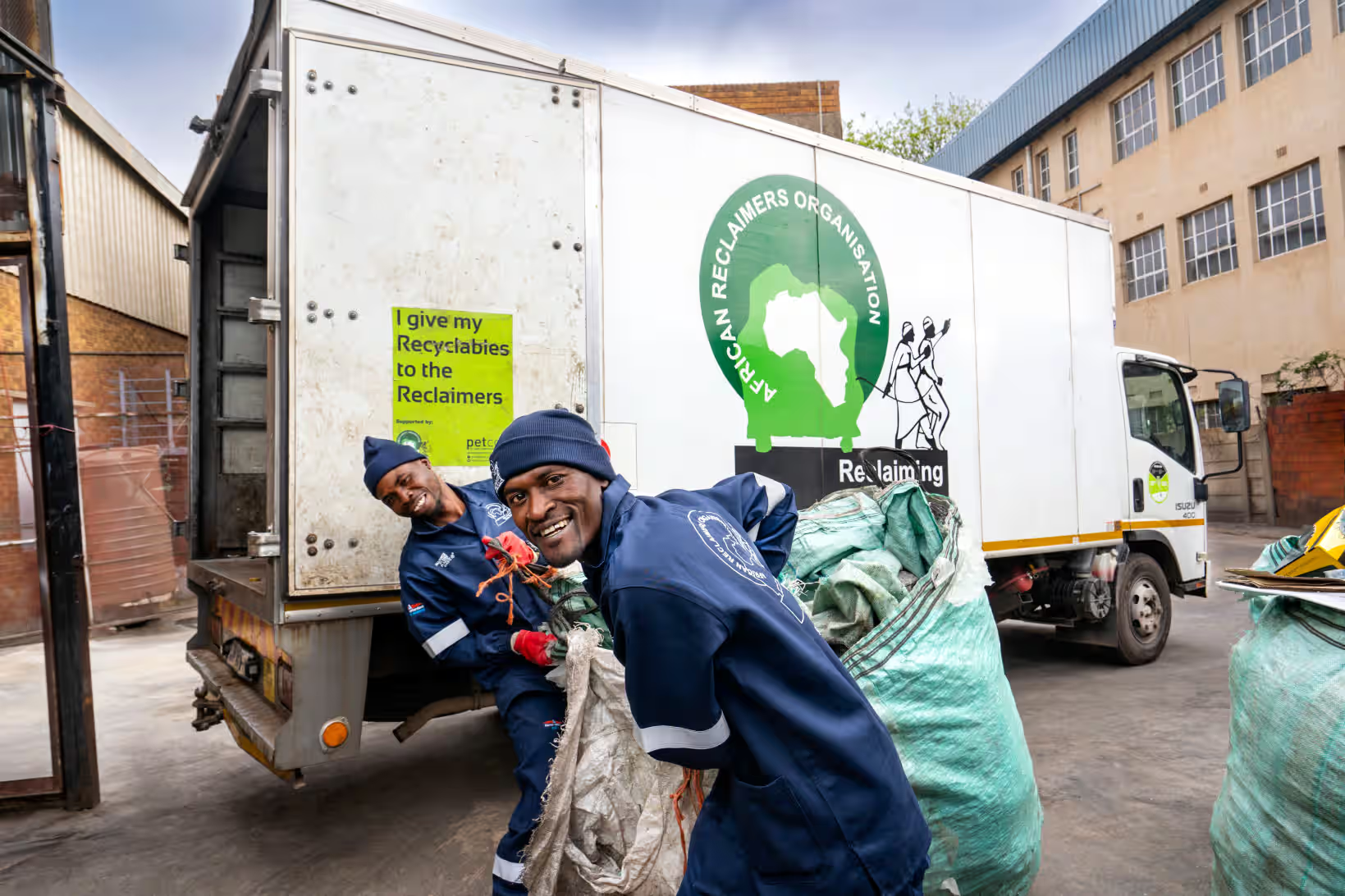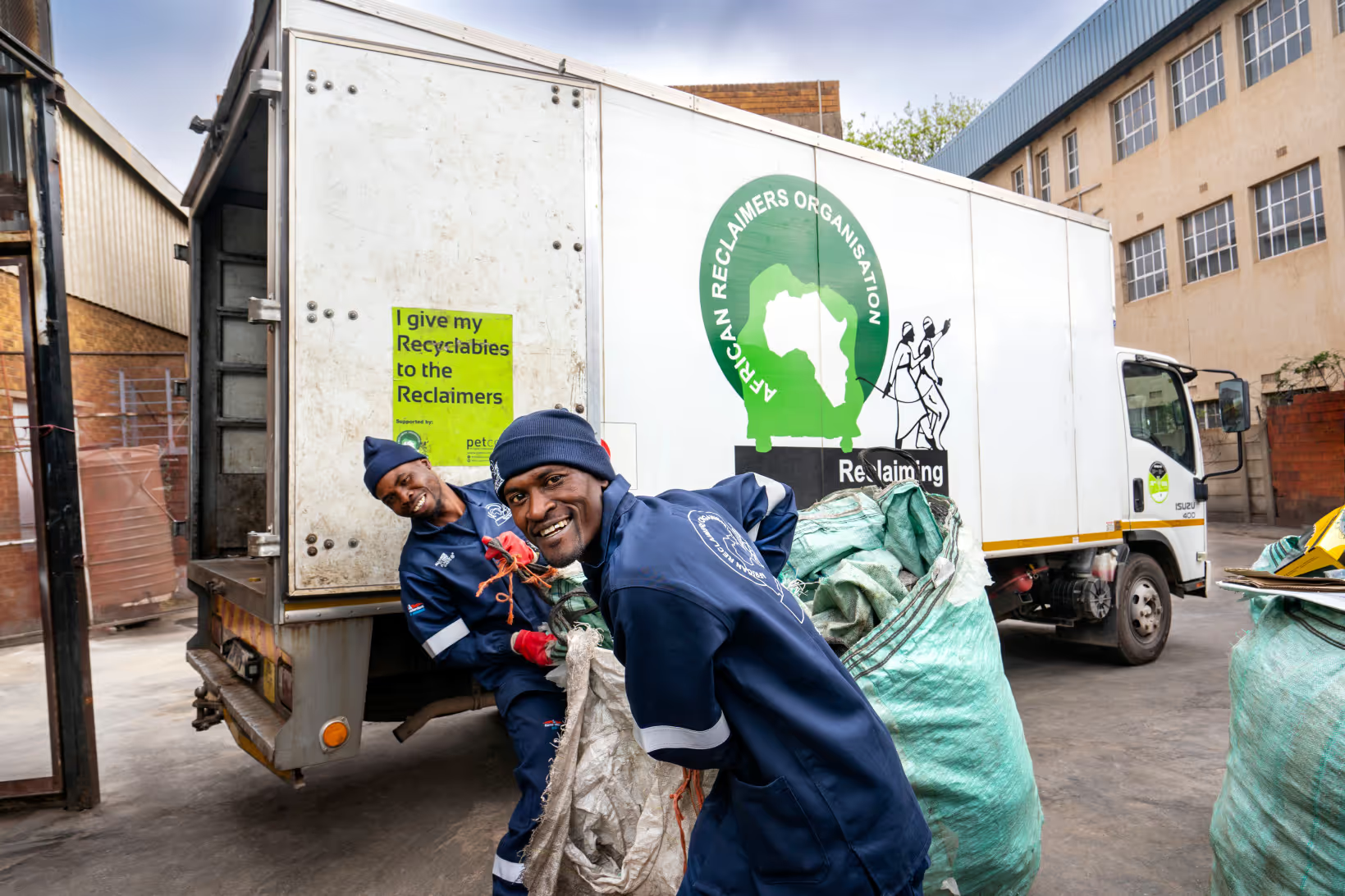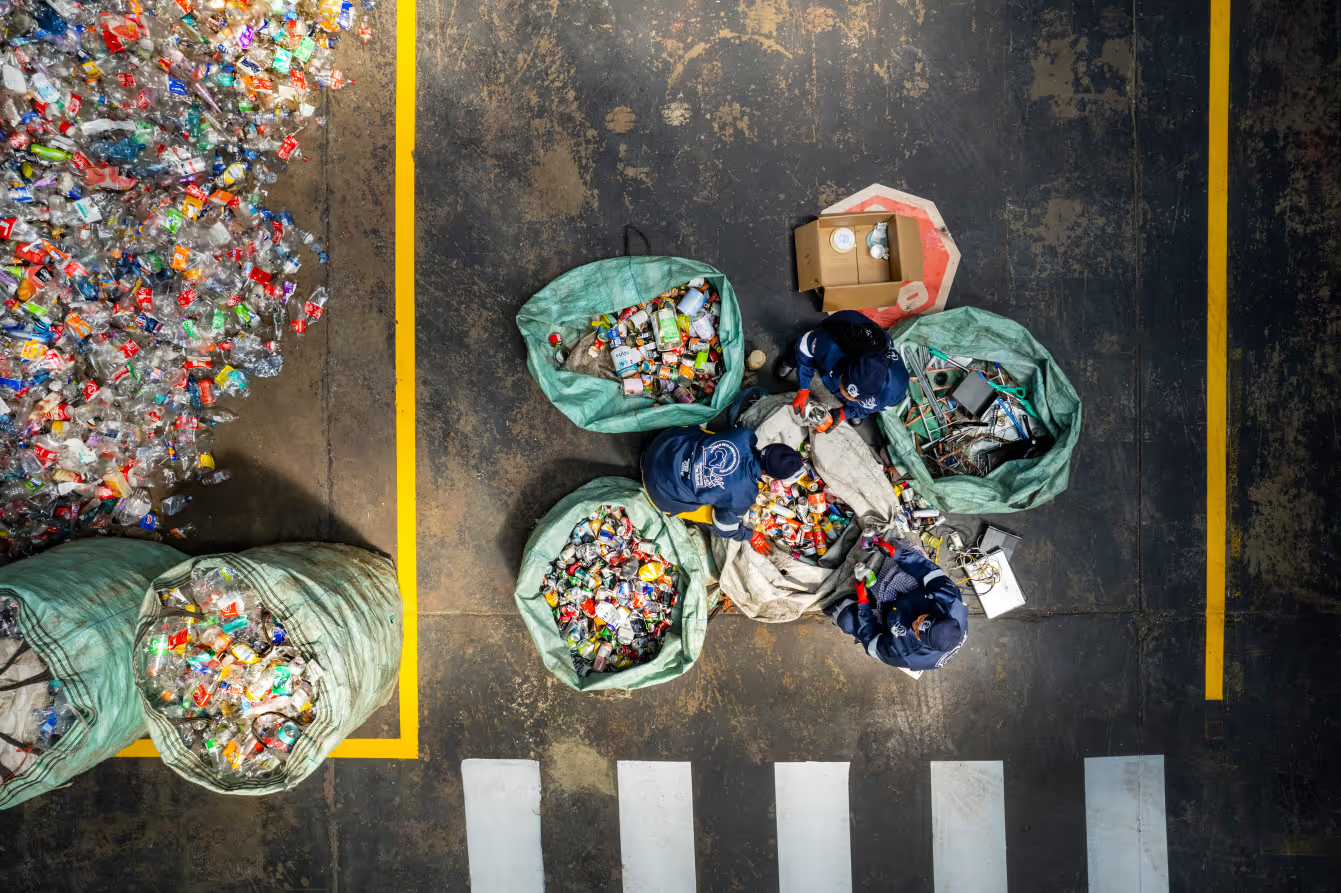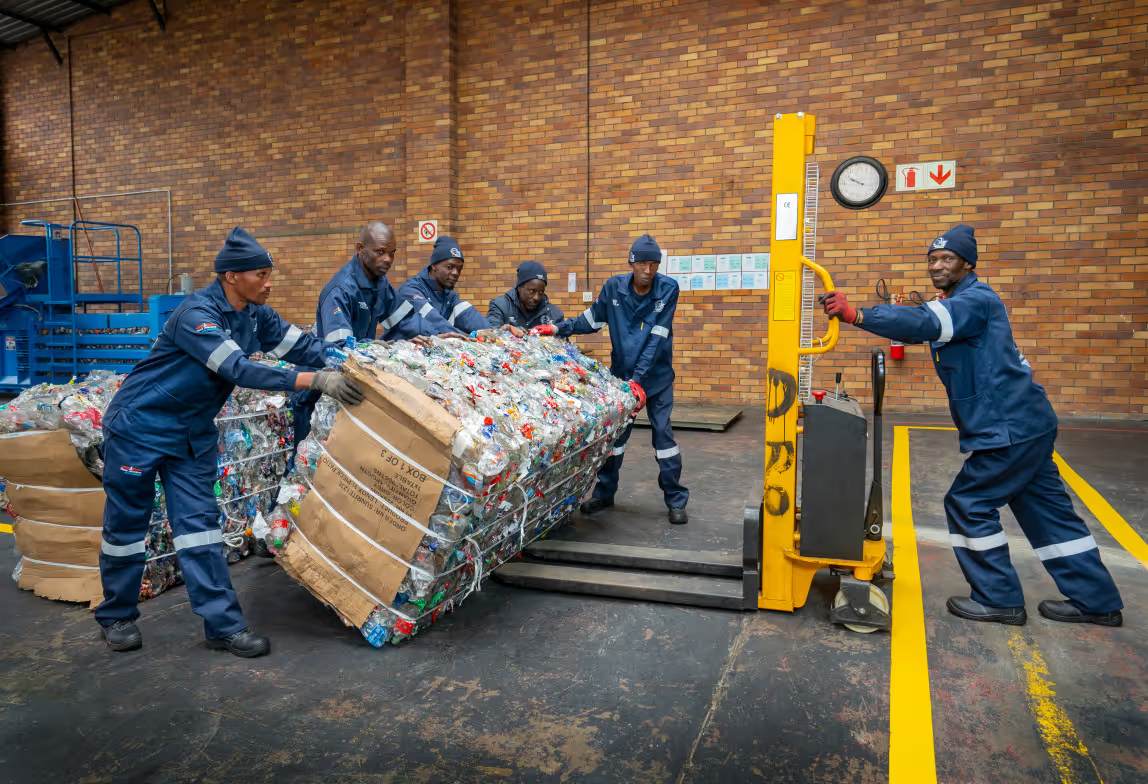
ARO
Download Our Progress Report 2024: Evolving for Impact
The Alliance supports a range of projects in countries that are at different levels of plastic recycling maturity. All are attempting to break through assumptions of what is currently possible within their local context. Find out more in our Progress Report.
Gaining recognition in an invisible trade
Mantoa Khoali steps on to her trolley and pushes off through the pre-dawn darkness of Auckland Park and Brixton in Johannesburg. The 45-year-old single mother is among an estimated 90,000 informal waste workers in South Africa who make their living scavenging recyclable items from garbage bins.
It is tough and dangerous work requiring long hours to make ends meet, but Khoali and the other reclaimers, as these workers are called in South Africa, are essential to the country’s waste management. South Africa faces an escalating waste management problem. The country generates around 107.7 million tonnes of waste annually, of which only 21 per cent is diverted from landfills.
The reclaimers play a vital role in minimising waste that enters the environment, collecting around 80 to 90 per cent of post-consumer packaging waste in South Africa. Yet, they face discrimination because informal waste picking is not an officially recognised occupation.
“There are some residents who don’t understand what we do. They call us names and insult us when we come to take waste from their bins. They think we are criminals,” says Khoali. Reclaimers, especially women, also face the threat of physical violence.
Uplifting reclaimers
This is where the African Reclaimers Organisation (ARO), a non-profit founded in 2018, comes in. ARO seeks to address several of the challenges reclaimers face, for example, by helping them to manage operational risks, by providing training and by educating householders about their work.
The informal workers had in the past used a makeshift base of operations under a highway overpass as a site to sort the trash they had collected. ARO has provided more secure facilities where they can safely sort out the valuable recyclable items. With more space, they can also sort in bigger volumes. The project also provides sturdier trolleys to make collecting the waste easier.
Currently, ARO has more than 6,000 registered reclaimers in its network. While it primarily operates in Johannesburg, with two sorting facilities in the metropolitan areas, ARO also has a sorting facility in the rural province of Mpumalanga, located in the North-East of the country.
“In South Africa, municipalities collect recyclable waste from households about once a week, but they do not separate waste at the collection point; residents have to do it themselves,” says Noluthando Tutani, Programme Manager at ARO.
That means the reclaimers only have a small window to collect recyclable waste at households before the scheduled waste collection trucks arrive to empty the bins.
To get around this problem, ARO organised community engagement sessions for residents to educate them about separating their waste at source. It also makes the process easier for residents by providing them with reusable bags to deposit their recyclables.
From the Margins to the Mainstream
South Africa has a very mature recycling industry, but it also faces many difficult challenges with waste management due to the lack of resources and bureaucratic inefficiencies.
Recognising ARO’s ambitious goals and hurdles, the Alliance partnered with the organisation to provide operational and financial support. This included funding two collection trucks and three balers to increase plastic waste collection.
The Alliance also helped ARO develop a safer working environment by encouraging them to implement health and safety rules and by providing personal protective equipment.
Aside from helping informal workers directly, ARO is also building closer working relationships with municipalities and Producer Responsibility Organisations (PROs).
The latter are key stakeholders in promoting circularity as they have been tasked to develop collection and recycling infrastructure and pay collection service fees to reclaimers registered in the South African Waste Picker Registration System (SAWPRS).
The PROs channel funds to affiliated buyback centres, which then disburse collection service fees to SAWPRS-registered reclaimers.
These reclaimers receive a service fee of 0.15 ZAR (US$0.0085) per kilogramme of recyclables collected, in addition to the income from selling their materials.
SAWPRS also issues identification cards to registered reclaimers, which formally recognises them as waste pickers within the national waste management framework.
With support from the Alliance and the World Bank, ARO registered 3,000 of its reclaimers with SAWPRS.
Elevating lives
ARO’s success is driving a just transition for the reclaimers and offers a model that can be potentially replicated nationwide.
“The reclaimers are bringing in larger volumes of waste and waste that is of higher value. Through the reclaimers’ work and ARO’s efforts in encouraging residents to sort their waste, we diverted over 14,300 tonnes of waste in 2024,” says Tutani.
She adds that the Alliance’s support has also enabled ARO to buy waste from reclaimers at prices above the prevailing market rates during the downturn in December.
Tutani acknowledges that more can still be done—for instance, stronger legislation to empower informal waste pickers and better enforcement of Extended Producer Responsibility (EPR) schemes. ARO is also seeking to reach more communities and launch more sorting facilities to help more reclaimers.
For reclaimers like Khoali, there is much to feel optimistic about. She is now more confident when approaching residents. “By wearing the ARO uniform, I feel more comfortable than before when I’m at work. It gives you dignity,” she says.
Tutani has observed that the residents are now more welcoming to reclaimers.
“Some provide drinks and water... A few even allow reclaimers to use the toilets in their houses,” she says. “Reclaimers also no longer have to compete with the collection trucks because the residents would have already sorted the waste beforehand.”
Click here to find out more about this project.


